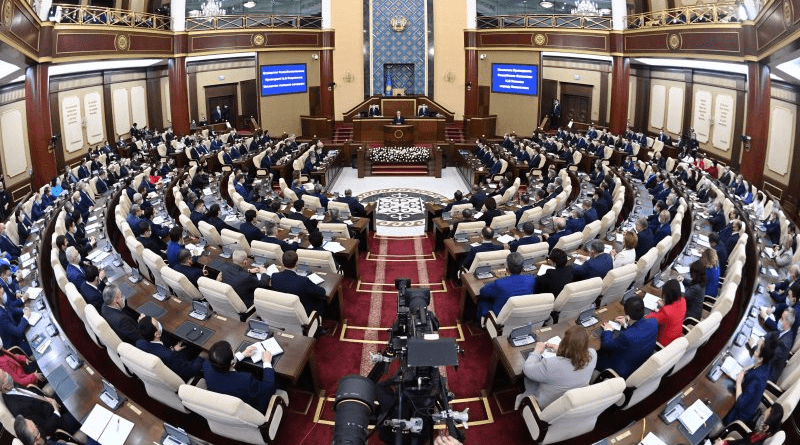Parliamentary Elections In Kazakhstan: A Forgotten Taste Of Choice – OpEd
By Kuat Dombay
On March 19 the people of Kazakhstan will be electing a new Parliament. For the first time since 2007 independent candidates are permitted to claim 30% of seats in the lower House. This could trigger important changes in the future balance of power, prior to the next presidential elections.
Unlike in the previous decades of Nazarbayev’s rule, which overall were marked by a concentration of all powers in the president’s hands, the political pendulum looks like it is reversing to liberalization. Current president Tokaev significantly eased electoral law thus fulfilling his last year’s promises of political reform. This follows on important constitutional changes, which he introduced last summer limiting the president’s serving to only one 7-year term, increasing parliamentary powers and allocating 29 seats (out of 98) to individual non-party representatives (since 2007 all Parliament seats in Kazakhstan could only be occupied by officially registered parties delegates).
The possibility to campaign for seats by independent candidates created a whole new democratic bonanza in Kazakhstan, with almost 550 all sort of public figures, bloggers, businessmen or former opposition leaders getting registered without any problem. This makes it 15 candidates per seat on average, but two main cities Astana and Almaty got most of the independent candidates at a rate of 33- 35 candidates for each polling station. On top of that there are 79 candidates more from 7 parties (2 of which are also newly registered), plus a few representatives from so-called “public associations”.
According to Arman Shurayev, prominent public activist on patriotic grounds: “The elections will be a test to understand whether political reformation is a real commitment by the current government”. Another candidate, Sayat Nussupov, former official from education ministry, treats this as a chance to introduce important reforms in the public sector. At the same time Aidos Sarym, local political observer and former Parliament member, notes that absolute majority of the new independent candidates lack clear campaigning platforms, financial resources nor skills.
Despite the fact that the rest 70% of the new Parliament will be filled by those officially registered 7 parties, who advanced with 281 candidates (90 of which represent the old ruling party Amanat) the whole situation is now radically different. The sheer number of candidates exceeds what happened in Kazakhstan in the 90’s during the Perestroika and Glasnost era.
Although a lot depends how the election will be conducted, with the situation and controls differing in urban and rural areas, even a few independent candidates getting to the Parliament will shake the legislative body. The new parliament is likely to trigger reforms in executive powers, lower corruption and introduce more elective positions, with district governors among them.
The next 5-year term of the new Parliament is also likely to foster new political movements and give a birth to new parties, which will take part in the presidential election due to happen in 2029, from which current president Tokaev has already declared he will not participate.

